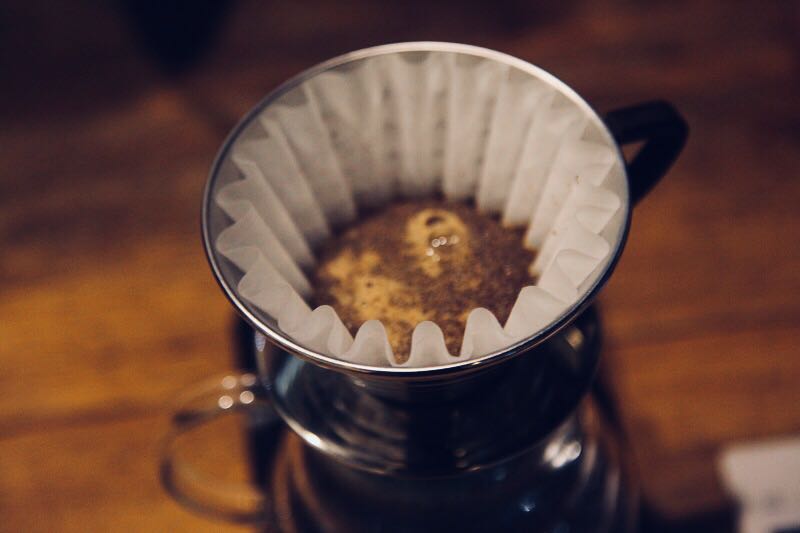Kenyan coffee varieties SL28 and SL34 introduce why Kenyan coffee is sour

Professional coffee knowledge exchange more coffee bean information please follow the coffee workshop (Wechat official account cafe_style)
Kenya, located in East Africa, is one of the major coffee producing countries. More than 6 million people in the country are engaged in the coffee industry, mostly in the form of a combination of small farmers and cooperatives.
Coffee trees in Kenya are mostly planted at 1400 m-2000 m above sea level, and the growth areas include Ruiri, Thika, Kirinyaga and Mt. Kenya West, Nyeri, Kiambu and Muranga. Mainly in the foothills of Mt.Kenya and Aberdare. There are many producing areas in Kenya that strive to preserve the native forest ecosystem, protect the natural gene pool, support the reproduction of wild coffee varieties and breed a variety of coffee trees.
In 1930, the unique Kenyan varieties SL28 and SL34, which were cultivated and named by the "Scott Laboratories" laboratory, were born under such a good environment. According to botanists in SL laboratory, SL28 and SL34 are genetic variants.
Among them, SL28 has a mixed pedigree of French missionaries, mocha and Yemeni Tibica. The goal of cultivating SL28 was to mass produce coffee beans with high quality and resistance to diseases and insect pests. Although SL28 did not produce as much as expected, copper and broad bean-shaped beans have great sweetness, balance and complex flavor, as well as significant citrus and black plum characteristics.
SL34 is similar to SL28 in flavor, with a heavier, fuller and cleaner finish than SL28, except for the complex acidity and great sweetness of the finish. SL34 has French missionaries, bourbon, and more Tibica ancestry. Dou looks similar to SL28, but is more adaptable to sudden heavy rain. It is these two important varieties that lead us to the unique Kenyan style: strong acidity, rich taste and beautiful balance.
Qianjie recommended cooking parameters:
Hand punch: V60 filter cup small Fuji R440 grinding 3.5, water temperature about 90 degrees
The recommended grinding degree of normal pressure is 4 and the water temperature is 90 ℃.
The recommended siphon grinding degree is 4, and the water temperature is 90 ℃ ~ 91 ℃.
The pressure grinding degree of Philharmonic is recommended to be 3.5, and the water temperature is 90 ℃.
Important Notice :
前街咖啡 FrontStreet Coffee has moved to new addredd:
FrontStreet Coffee Address: 315,Donghua East Road,GuangZhou
Tel:020 38364473
- Prev

Maybe you're not drinking cappuccino at all. How to make cappuccino?
Professional coffee knowledge exchange more coffee bean information please follow the coffee workshop (Wechat official account cafe_style) what if the cappuccino you had this morning was not really a cappuccino? How awful. And even more frightening is: what if your little white coffee (flat white) is the authentic cappuccino? Flat white and cappucino have been arguing recently.
- Next

[hand flushing knowledge] should the steaming time of 30 seconds be calculated from or after water injection?
Professional coffee knowledge exchange more coffee bean information Please follow the coffee workshop (official Wechat account cafe_style) fans who came to visit the store today asked the editor a question: does the steaming time start from the beginning of water injection, or does it start after water injection? Sure enough, it is a problem of blackening under the light. Most of the time, the editor will advise everyone to steam for about 30 seconds, but forget to understand.
Related
- Beginners will see the "Coffee pull flower" guide!
- What is the difference between ice blog purified milk and ordinary milk coffee?
- Why is the Philippines the largest producer of crops in Liberia?
- For coffee extraction, should the fine powder be retained?
- How does extracted espresso fill pressed powder? How much strength does it take to press the powder?
- How to make jasmine cold extract coffee? Is the jasmine + latte good?
- Will this little toy really make the coffee taste better? How does Lily Drip affect coffee extraction?
- Will the action of slapping the filter cup also affect coffee extraction?
- What's the difference between powder-to-water ratio and powder-to-liquid ratio?
- What is the Ethiopian local species? What does it have to do with Heirloom native species?

